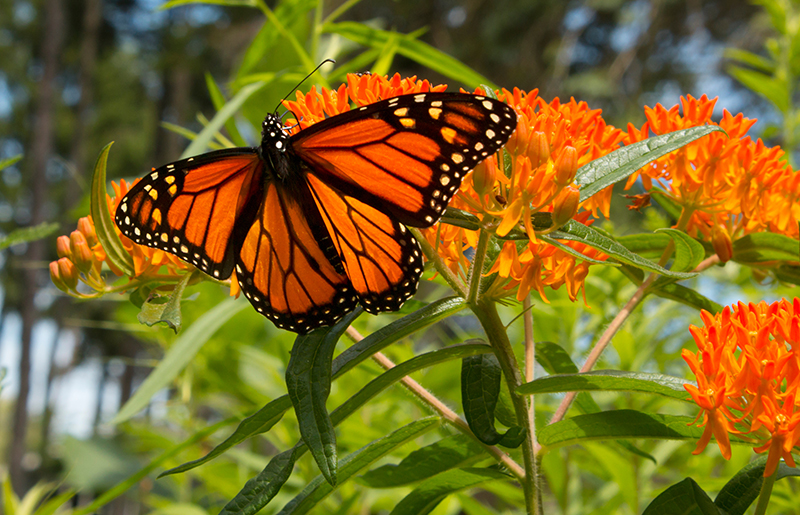
Successful Butterfly Gardening This Spring
Article by Terri Simon, Harris County Master Gardener
Spring is almost here and one thing the kids can enjoy is planting for butterflies. If you keep track of the Monarch butterflies, they begin migrating back to the U.S. from their winter home in Mexico around the end of March.
Some experts prefer that only native plants should be used, but others may not. The one thing that some experts are still debating is whether to include a butterfly bush (Buddleia davidii) in that butterfly garden. Several varieties are invasive and have been banned in some areas. Western Europe considers it a weed. New Zealand has banned it and the state of Oregon only allows sterile cultivars. One major problem is that while there are beautiful varieties available, the bush is not a food plant for caterpillars. When planting your butterfly garden, include plants that will provide nectar and food for all stages of butterflies, from caterpillar to adult. Personally, I do not have good luck with Buddleia davidii. I have killed at least five.
Another reminder is to become familiar with the different varieties of caterpillars. Do not kill caterpillars that may become butterflies. You will defeat the purpose of having a butterfly garden. Orange dog caterpillars are incredibly ugly and somewhat scary. They resemble poop and can be found on citrus trees. It is hard to believe something that ugly becomes a beautiful swallowtail.
Do not use pesticides in your butterfly garden. They can wipe out all life stages of the butterflies you are trying to attract. This includes mosquito sprays. Organic pesticides can have the same effect.
Guess what? Your garden needs to be maintained. Weeding, some trimming and mulching needs to be done on a regular basis. Plants you buy probably have pesticide residue because many come from wholesale providers. Don’t plant them right away in your butterfly garden until the pesticide has had time to dissipate. This may take several weeks. It is okay to use a mixture of native and non-native plants if you wish.
For attracting Monarch butterflies, remember they prefer to lay their eggs on milkweed. This is the only host plant for this iconic species, as Monarch caterpillars feed exclusively on milkweed leaves.
Patience. You may have to wait a while before the butterflies show up. Don’t give up.
Source: Harris County Master Gardeners


